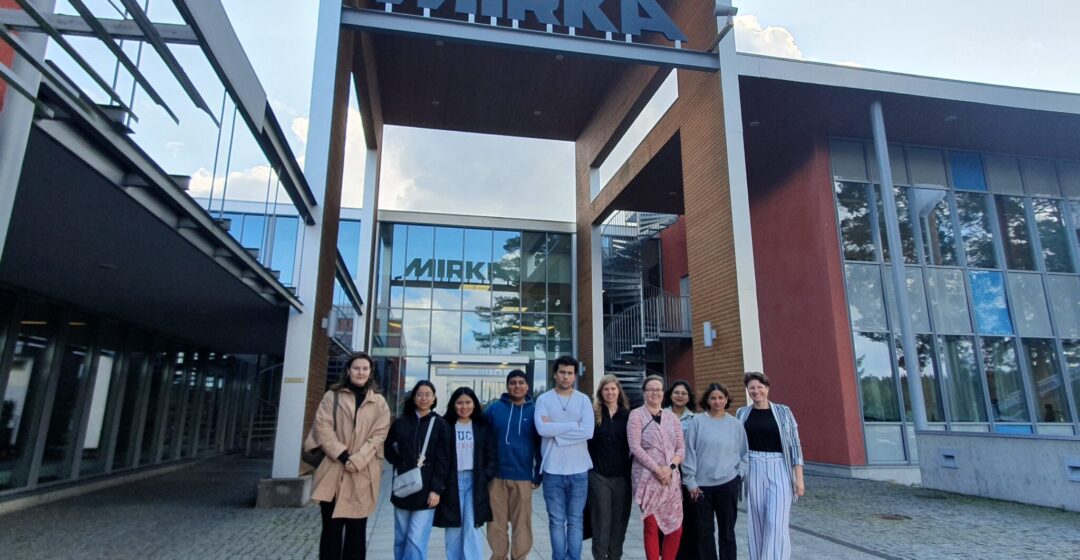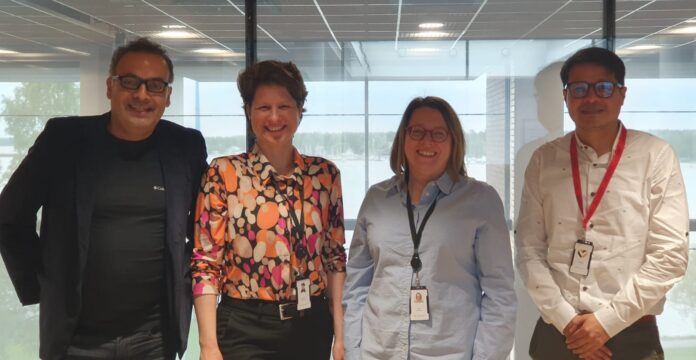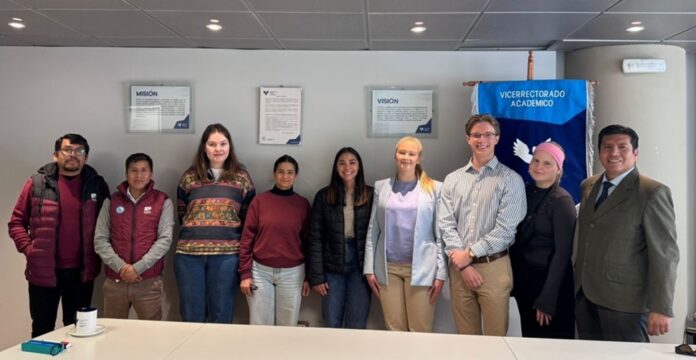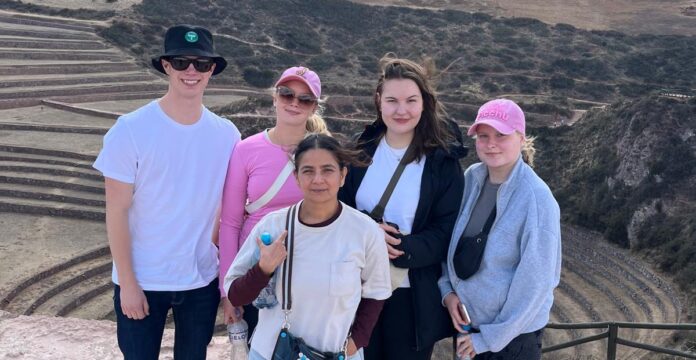Written by Ester Xicota, Lecturer at the PUCP, Peru who visited the University of Vaasa summer 2024 and led a group of students in the short study abroad trip
The summer 2024, I had the privilege of participating in a trip as part of the COIL project organized by the University of Vaasa and the Pontificia Universidad Católica del Perú.
This journey, which involved sharing my expertise, learning from industry leaders, and fostering new collaborations, has been profoundly enriching, both personally and professionally.
My main role was to be a support for the students that won the competition organized in the context of the course. The students took part in different activities in Vaasa that were extremely useful and exciting for them.
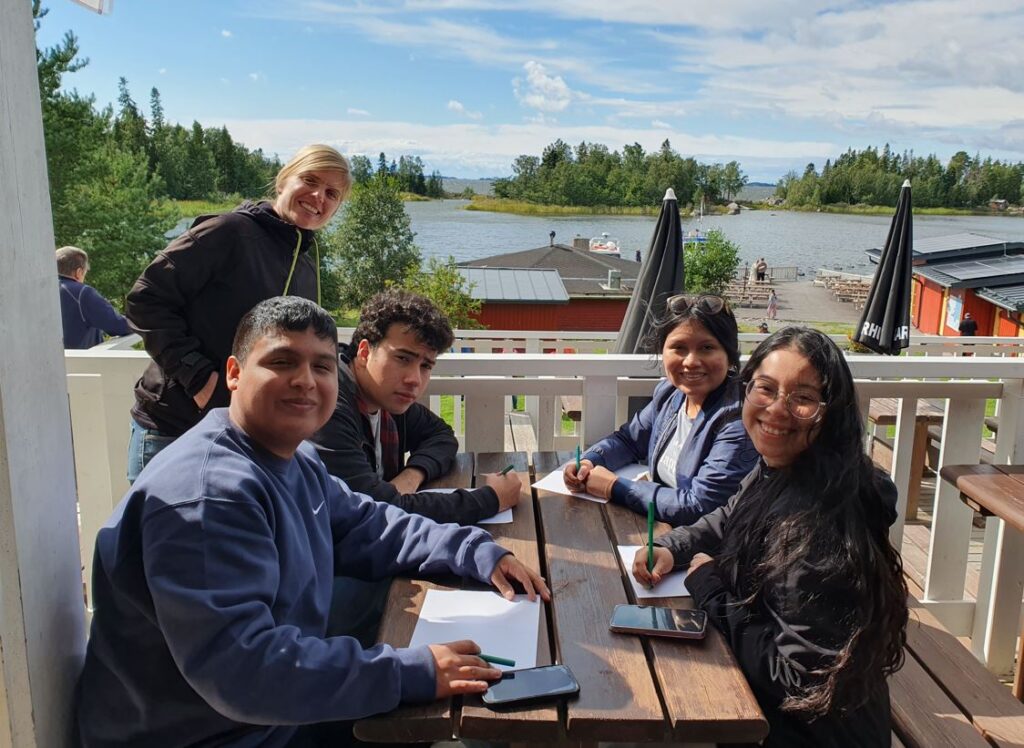
The main activity was participating in the International Summer School of Venture Creation at the University of Vaasa. There I served as a mentor to students, experience that reinforced my mentoring capacities. By providing guidance and support, I was able to help these students broaden their perspectives, think critically about global business challenges, and become more confident in their abilities. It’s a reminder that mentorship is not just about imparting knowledge; it’s about empowering others to discover and believe in their potential.
Throughout the program, I witnessed their growth—both in terms of their entrepreneurial skills and their confidence— which was very inspiring. It was particularly fulfilling to see how Peruvian students started to recognize their own potential, realizing that they were as capable as any other student from around the world in developing innovative ideas and bringing them to life.
In this context, I also had the chance to engage with professionals from Wärtsilä and other companies, which provided invaluable insights into the intersection of industry and academia. These interactions were enlightening and confirmed me of the importance of collaboration between academia and industry in fostering innovation and sustainable business practices. Additionally, these interactions influenced my own research perspectives, particularly in exploring how sustainable practices can be more effectively integrated into global business strategies.
We also visited Helsinki to explore the city through from a sustainability standpoint and reflecting on aspects that caught students’ attention. These aspects led to insightful explanations from the Finnish guides about the cultural, historical, and social contexts. The opportunity to build my capabilities in organizing and implementing short travel abroad study trips was one of the most significant aspects of my trip. Experiencing the intercultural aspects that influence the planning and execution of such programs was incredibly valuable. These insights will be instrumental as I prepare to support Finnish students traveling to Peru and other future exchanges that may arise between the University of Vaasa and institutions in other countries.
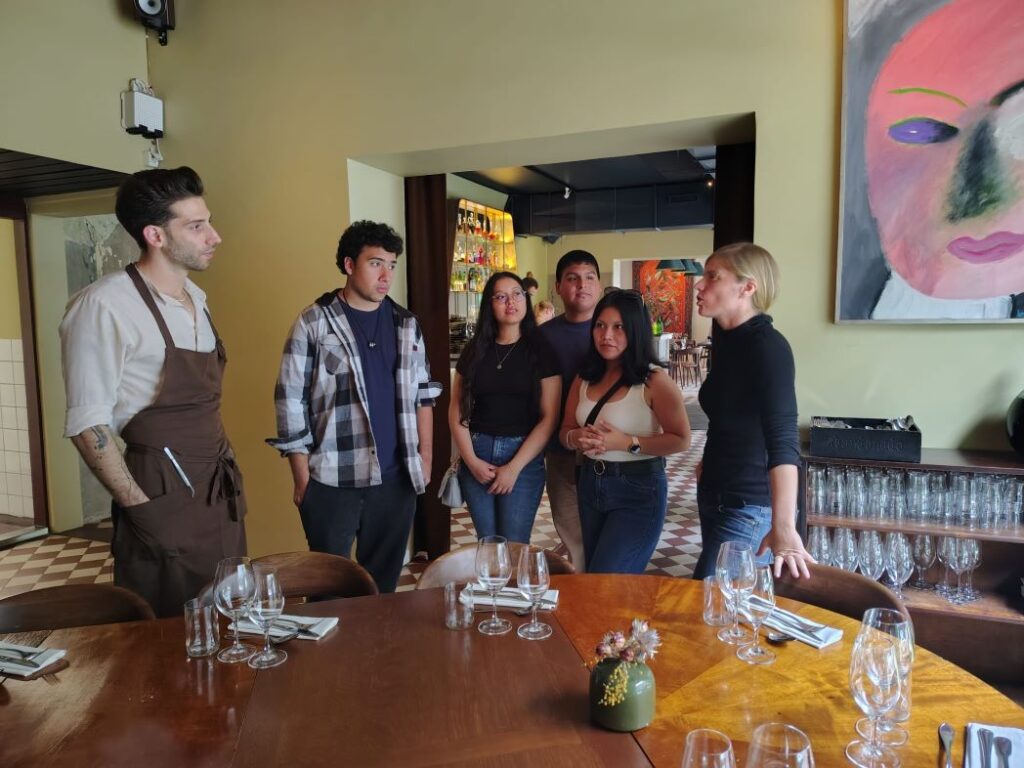
Finally, we visited Mirka, the company that the students worked during the COIL competition. We were on a tour within the company were we received information on how the company is operating and driving its sustainability strategy and participated in an activity that aimed at building proposals and advice for Mirka’s improvement. The students also did a tour in the university facilities and expressed their interest in come to Vaasa and do their master’s degree.
Understanding the details of intercultural communication, logistics, and the varying expectations of students from different cultural backgrounds has provided me with a solid foundation to create meaningful and impactful study abroad experiences. This knowledge will benefit future student groups and also enrich my approach to international education and collaboration.
The visit to Vaasa also offered me the chance to engage with researchers at the university who share my research interests. We had interesting and stimulating discussions that provided me with valuable feedback on my ideas, helping to refine my focus and approach. The connections I made with these researchers are not just professional contacts; they represent potential long-term collaborators who can contribute to the advancement of my research and academic career. The complementarities in our research fields suggest a strong potential for collaboration, and I am eager to explore these possibilities in pursuing a PhD at the University of Vaasa.
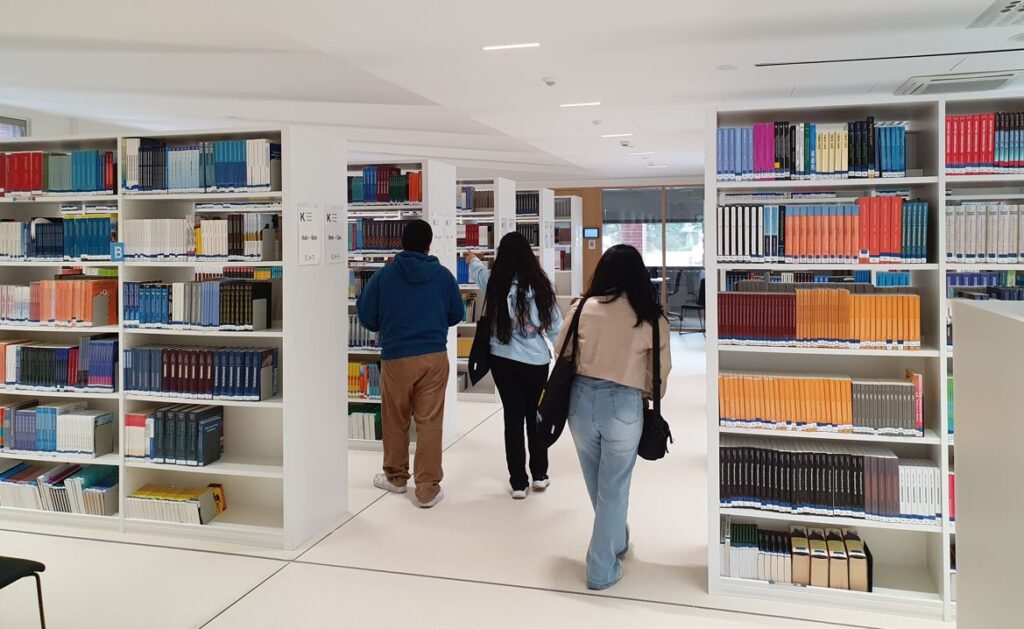
Overall, my experience in Vaasa has been transformative. It has allowed me to contribute to the development of students, build new professional networks, and gain invaluable insights that will shape my future endeavours. I am deeply grateful for the opportunity to engage with the University of Vaasa, Wärtsilä, and other professionals, and I look forward to continuing these collaborations in the future.
Acknowledgement
This visit was part of a collaborative project “Education for sustainable internationalisation of a firm (ESGinMNC)” uniting PUCP and University of Vaasa. The project was funded by by the Finnish National Agency of Education, TFK 2023. This project has been coordinated by Aušrinė Šilenskytė, Program manager and researcher at the University of Vaasa, Finland.
